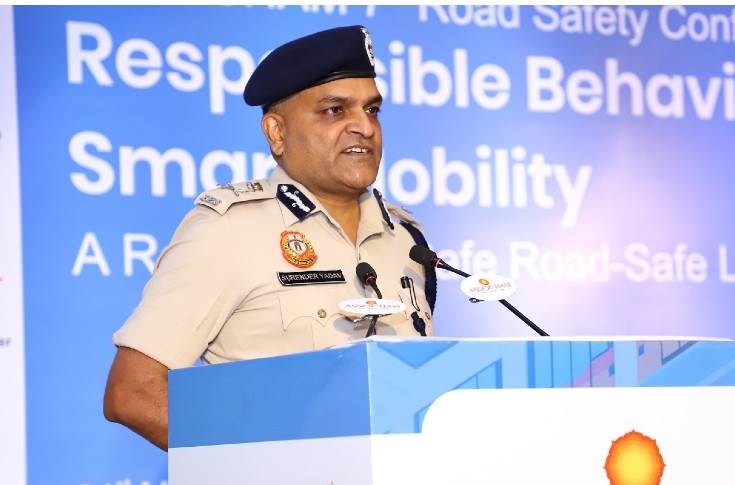The AI-based traffic system or Intelligent Traffic Management System (ITMS) will be a game-changer once it is fully implemented on Delhi’s roads, said Surender Singh Yadav, Special Commissioner of Traffic Police, Delhi. Delhi of IPS at 7th ASSOCHAM Road Safety Conference on ‘Responsible’. Intelligent behavior and mobility “A road map for a safe life on the road”.
Speaking at the event where he was the chief guest, Yadav mentioned that the ITMS would take another 1-1.5 years to be fully implemented and would cost approximately Rs 1.4 billion.
Yadav, who is part of a special committee on road safety constituted by the Supreme Court, informed that they are working on technological initiatives to make traffic much smoother in the national capital.
“We’re working on ways to see how technology can improve travel in emergency corridors and emergency services. We’re also looking at how we can improve our traffic control rooms and their communication with ambulance networks.” , he said.
He added that the government is putting a lot of emphasis on road safety due to the increase in the number of fatalities. “Around 2300 accidents were reported in the Delhi region, of which 40% were pedestrian accidents. With 3.5 lakh violations per month for red light and speeding, responsible behavior is crucial for all vehicle owners,” he informed.
He explained that more collaboration between the public and private sectors is needed to improve road safety, ensuring safety measures to prevent fatalities, economic burden with major traffic accidents, sustainable development, public health and strict enforcement of traffic laws . “The government is constantly working to work on infrastructure development to improve the quality of roads and safer sustainable roads,” he added.
Speaking on the 4Es (Education, Enforcement, Engineering, Emergency Care), KK Kapila, President (emeritus) of the International Road Federation (IRF) focused on tackling road safety challenges and sustainable solutions. Road education is a vital life skill. It is a collective responsibility to prioritize road safety and work to create safer roads for everyone. Every life lost or affected by a traffic accident is a painful reminder of the urgent need for comprehensive action.
Vinod Pandey, Chairman, ASSOCHAM Global Value Chain Council and Director, highlighted vehicle safety, which is a major influencing factor that provides safer tools to prevent any deaths. With the rise of digital transformation, there is a wide range of countless opportunities such as vehicle-to-vehicle communication, electronic calls, safety alerts and anti-lock braking systems (ABS). “Regular vehicle inspections and maintenance checks can help ensure vehicles are roadworthy,” he added.
Nitin Pawar, Managing Director, Honda Motorcycle & Scooter India said that road safety is a primary concern for all of us. “Improving road safety in India requires a multifaceted approach involving government initiatives, public participation and collaboration among various stakeholders, including government agencies, law enforcement authorities, educational institutions, health providers and civil society organizations,” he noted.
In his speech, Jyoti Malhotra, Managing Director, Volvo Car India, focused on educating people about road safety. “Awareness campaigns must focus on responsible driving practices, the importance of wearing a helmet and seat belts, avoiding alcohol and respecting traffic rules. Regular monitoring by traffic police, use of technology like CCTV cameras and stricter penalties for traffic violations can save substantial human lives,” he informed.


